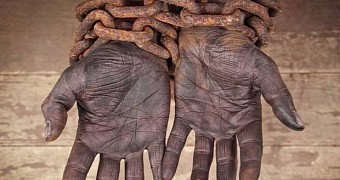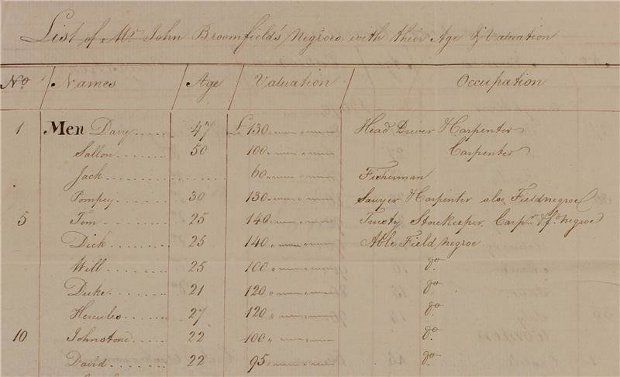Back in the 18th century, an Englishman by the name of William Philip Perrin owned a sugar plantation near Kingston, the capital city of Jamaica. To keep work on his plantation running smoothly, he would buy slaves. Mind you, other businessmen did the same.
Recently, researchers at St. John's College at the University of Cambridge came across papers and letters revealing the cost of buying slaves to work on plantations or around the house in those days.
The papers, dating from between the years 1772 and 1797, detail business transactions between English landowner William Philip Perrin and the men who got him the slaves he needed for his plantation.
The documents are shockingly practical
Among the letters and papers discovered by the University of Cambridge researchers is a note dating from 1797 and plainly described as “a list of Mr. John Broomfield's negroes, with their age and valuation.” It was from this list that William Philip Perrin picked the slaves that best suited his needs.
The note lists a total of 54 slaves, 35 men and 19 women. Their value: £5,100, which researchers say is the equivalent of about £500,000 (roughly €700,000 / $780,000) in this day and age.
“Dick, 25, able field negro, £140” and “Castile, 45, cook and washerwoman, £60” are among the slave descriptions and price tags included on this list.
Then, a letter dating from 1796 shows that, in those days, the people in charge of managing William Philip Perrin's estate were looking for 60 slaves the English landowner needed to work on his Grange Hill estate. The letter even mentioned the slaves would be happy to be in Perrin's service.
Also included in the papers revealed by historians are talks about how and when to ship the slaves to William Philip Perrin's sugar plantation, even details about customs duties.
Owning people was no big deal in those days
It wasn't until 1807 that the Parliament of the UK abolished the slave trade throughout most of the British Empire and started pressuring other European states to do the same. Until then, the practice was perfectly legal and few deemed it immoral.
Quite the contrary, as evidenced by the letters, lists and other documents made public by University of Cambridge researchers, buying and selling slaves were business transactions like any other.
“Though appalling to modern eyes, for those involved these were matter-of-fact business transactions: a routine part of the 18th century economy in which business magnates made substantial profits from commodities produced by slave labor and their customers benefited from cheap goods.”
“What these letters reveal, apart from a total lack of empathy for their human commodities is the sheer amount of money involved,” researcher Kathryn McKee commented on these papers in an interview.

 14 DAY TRIAL //
14 DAY TRIAL // 

